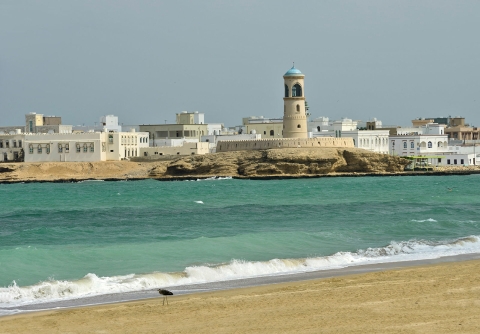The travel industry is undergoing a significant shift towards sustainability, with travelers increasingly seeking eco-conscious options that minimize environmental impact and support responsible tourism practices. ITB Berlin 2024 reflected this trend, with a strong focus on showcasing innovative solutions and highlighting destinations prioritizing eco-friendly approaches.
Green Destinations Take Center Stage
National pavilions and regional booths at ITB Berlin weren't just showcasing breathtaking landscapes and cultural experiences. Many destinations emphasized their commitment to sustainability initiatives. Visitors could discover:
- Eco-lodges and sustainable accommodations: These properties prioritize energy efficiency, water conservation, and local sourcing, minimizing their environmental footprint.
- Conservation efforts and responsible wildlife tourism: Destinations highlighted programs protecting endangered species and promoting responsible interaction with wildlife.
- Community-based tourism: Initiatives that empower local communities and ensure tourism benefits the residents while preserving cultural heritage.
Travel Tech for a Greener Future
Technology is playing a crucial role in driving sustainable travel practices. ITB Berlin saw several exciting advancements in this field:
- Carbon footprint calculators: These tools help travelers assess and offset the carbon emissions associated with their trips.
- Sustainable travel apps: Apps are being developed to connect travelers with eco-friendly transportation options, local experiences that respect the environment, and responsible businesses.
- Blockchain technology: Blockchain is being explored to improve transparency in supply chains, ensuring ethical sourcing and responsible practices within the tourism industry.
Travelers Seek Meaningful Experiences
Travelers are increasingly seeking travel experiences that connect them with nature and local cultures. ITB Berlin highlighted trends like:
- Ecotourism adventures: From wildlife safaris conducted with conservation efforts in mind to exploring pristine natural environments through responsible hiking and camping trips, ecotourism offers a way to experience nature while giving back.
- Agritourism: Staying on working farms and experiencing local food production first-hand provides a deeper understanding of sustainable agricultural practices and the importance of local food systems.
- Cultural immersion with local communities: Engaging with local communities through homestays, volunteering opportunities, and traditional cultural activities fosters a sense of respect for local heritage and reduces the environmental impact of mass tourism.
A Collaborative Effort for a Sustainable Future
The transition towards a more sustainable travel industry requires collective action. ITB Berlin facilitated collaboration between various stakeholders:
- Travel industry leaders: Discussions and workshops focused on developing best practices and implementing sustainable tourism initiatives across different sectors.
- Government representatives: Collaboration between governments and tourism industry players is crucial for creating supportive policies and regulations that encourage responsible tourism practices.
- Environmental organizations: Partnerships between the travel industry and environmental organizations ensure conservation efforts are integrated into tourism development strategies.
ITB Berlin 2024 served as a platform for showcasing a travel industry embracing sustainability. With innovative solutions, responsible practices, and a focus on meaningful experiences, the future of travel promises to be both enriching and environmentally conscious.
